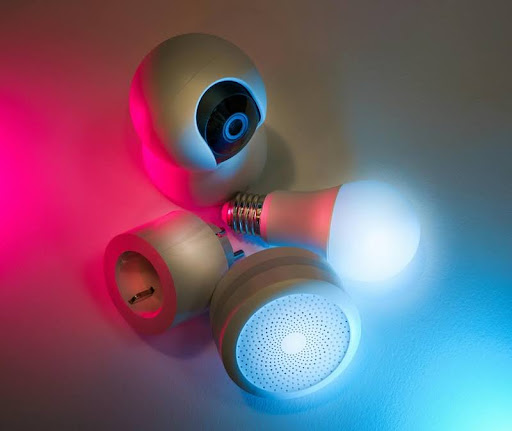
Learning the future: exploring AI careers one page (and click) at a time.
Artificial Intelligence. AI. You hear about it everywhere, right? From your smartphone’s voice assistant to self-driving cars, AI is shaping how we live and work. So it’s no surprise that many folks are wondering: Is AI a good career choice in 2025? If you’re just starting out or thinking about switching gears into tech, it’s a smart question. The truth is, AI is booming, but it’s also a field with its twists and turns.
Let’s break it down together. By the end, you’ll have a clearer idea if AI fits your career goals, what you’ll need to succeed, and how to get started without feeling lost.
What’s Going On With AI Careers Right Now?
First off, AI isn’t just some sci-fi buzzword anymore. It’s real, and it’s growing fast. In 2025, businesses big and small are diving into AI tech to improve everything from customer service chatbots to analyzing huge piles of data for smarter decisions.
Think about industries like healthcare, finance, retail, and even entertainment. They’re all using AI in different ways, creating tons of new jobs for people who know their stuff. And those jobs don’t all look the same. You’ve got roles like:
- Data scientists who dig into data to find patterns
- Machine learning engineers who build the models that help computers learn
- AI researchers pushing the boundaries of what’s possible
- AI ethics specialists are making sure tech is fair and responsible
That variety means there’s a place for lots of different talents and interests. But the big question remains: is this the right path for you?
Why AI Could Be a Great Career Move
Let’s talk perks. Why are so many people chasing AI jobs?
Demand is booming. Companies everywhere want people who can build and manage AI tools. More demand usually means more job openings, which is a big deal in today’s job market.
The pay is solid. AI careers tend to come with competitive salaries. We’re talking well above average compared to many other fields. It’s a career that can offer financial stability if you stick with it.
You get to innovate. Working in AI means you’re often at the cutting edge of tech. You’re solving problems that haven’t been solved before, building stuff that might change how we live or work.
There’s room to grow. AI isn’t one thing; it’s a whole ecosystem of jobs and specialties. That means you can start in one area and switch gears later without having to start from scratch.
Sounds pretty good so far, right? But it’s not all sunshine.
What Beginners Should Watch Out For
Here’s the thing: AI is exciting, but it’s also complicated. If you’re new, be ready for a learning curve.
It’s technical and tough. AI work often involves math, coding, and statistics. If those aren’t your favorite subjects, you might find parts of it challenging. But don’t let that scare you away, it just means you’ll need to put in some effort upfront.
The tech changes fast. AI tools and methods keep evolving. What’s hot today might be old news in a year. Staying sharp means you’ll be learning constantly, which can be tiring but also keeps things interesting.
Competition is real. Since AI is popular, lots of people want in. You’ll be up against others with strong skills and experience. Standing out requires dedication and maybe some creative thinking.
Ethics matter. AI isn’t just about code and data. The decisions AI systems make can affect people’s lives. Understanding the ethical side and being responsible with AI is part of the job, even if it’s not always obvious.
What Skills Do You Need to Get Started?
So, if you’re thinking, “Okay, I want in,” what do you need to learn? Here’s a quick rundown.
Programming is key. Python is the most popular language in AI because it’s powerful but relatively easy to learn. Start here if you don’t know where to begin.
Understand machine learning basics. Machine learning is like teaching computers to spot patterns and make decisions based on data. You don’t have to master every algorithm on day one, but knowing how it works will get you far.
Get comfy with data. AI depends on data, lots of it. Learning how to clean, analyze, and visualize data is essential.
Brush up on math. Some algebra, probability, and statistics are your friends here. You don’t need to be a math genius, but the basics help you understand what’s happening under the hood.
Develop soft skills. Problem-solving and critical thinking will help you tackle new challenges. Plus, communicating complex ideas is a skill that employers love.
And don’t forget, AI is a fast-moving field. Following blogs, research papers, and news can keep you in the loop.
How Can You Start If You’re New to This?
Not everyone studying AI has a computer science degree, so don’t worry if you’re coming in fresh.
Here’s how you can ease into AI without prior experience.
Try online courses. Platforms like Coursera, Udacity, and edX offer beginner-friendly AI and machine learning courses. Many are free or affordable and let you learn at your own pace.
Get hands-on with projects. Theory is great, but actual practice matters more. Build simple AI projects or join online competitions to apply what you learn. Even small projects look good on a resume.
Join communities. Forums like Reddit’s r/MachineLearning or local meetups are great for support and networking. Talking to others who are learning or working in AI can give you tips and motivation.
Look for internships or entry-level roles. Some companies offer positions that don’t require tons of experience but give you a foot in the door.
Remember, everyone starts somewhere. The key is to keep moving forward, even if it feels slow at first.
Looking Ahead: Will AI Stay a Good Career?
You might wonder, “Is this just a fad? Will AI still matter in 10 years?” Good question.
The reality is that AI is becoming deeply embedded in many industries. Think about how smartphones changed everything or how the internet reshaped work. AI is on that trajectory, it’s not going away anytime soon.
What will change is how we use AI. New tools, new ethical challenges, and new types of jobs will appear. To keep up, you’ll want to stay flexible and curious. The best AI professionals aren’t just tech wizards; they’re learners for life.
So yes, AI is a sustainable career if you’re ready to adapt and keep growing.
Wrapping It Up: Is AI the Right Move for You?
To sum it up, AI careers in 2025 offer exciting opportunities, strong demand, and good pay. But they also come with challenges, like learning tough skills and keeping pace with change.
If you’re someone who enjoys problem-solving, isn’t afraid to keep learning, and wants to be part of shaping the future, AI could be a great fit.
Not sure yet? That’s okay. Take your time exploring, try a few courses, and see how it feels. The tech world is vast, and there’s room for many kinds of talents and interests.
At the end of the day, a good career in AI is one where you feel curious, challenged, and ready to grow. Is that you? If yes, then welcome to the AI adventure.



